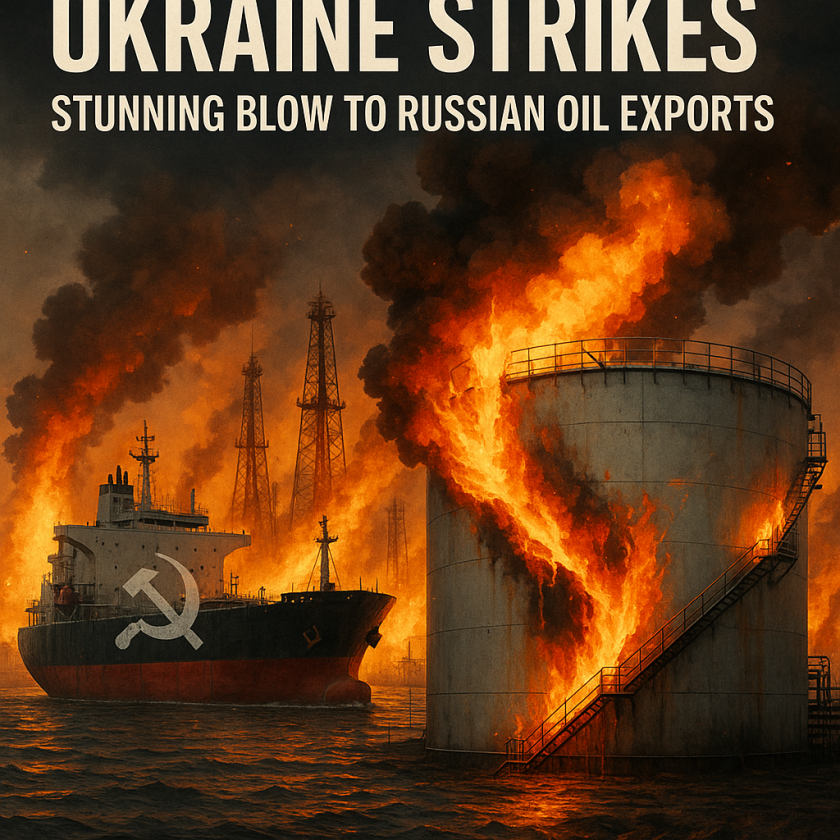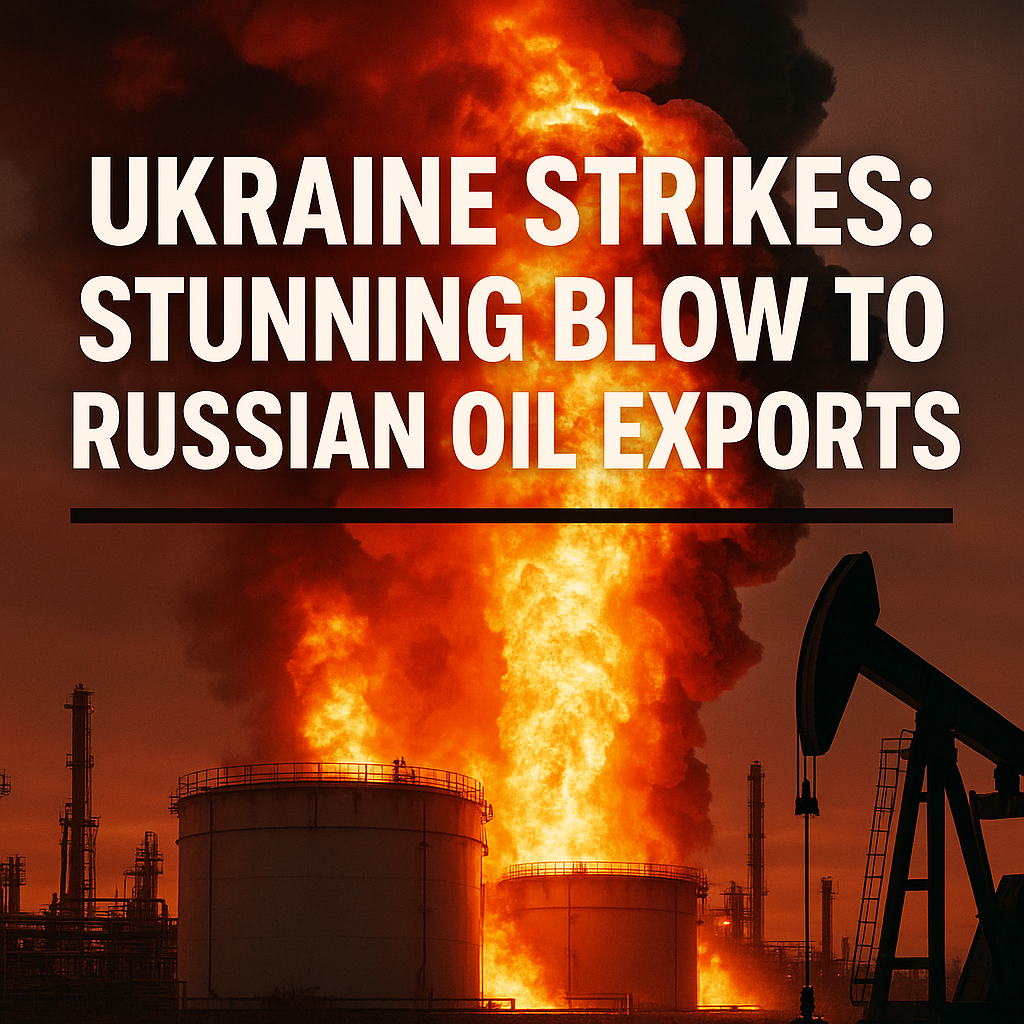Ukraine Strikes: Stunning Blow to Russian Oil Exports
Ukraine Strikes: Stunning Blow to Russian Oil Exports
Ukraine’s recent military operations have delivered what many analysts call a stunning blow to Russian oil exports. As tensions escalate in the region, the implications of these strikes are reverberating through global markets, affecting not just the immediate conflict but also broader geopolitical relations. The situation is complex, with diverse perspectives emerging from various international news sources.
The Current Landscape of Russian Oil Exports

Historically, oil exports have been a significant revenue stream for Russia, funding substantial elements of its economy, including military operations. Following the onset of the conflict in Ukraine, sanctions from Western nations have aimed to undermine this revenue source. Recent strikes by Ukraine have intensified these efforts, targeting infrastructure critical to Russian oil production and distribution.
According to Al Jazeera, the Ukrainian strikes have successfully damaged key facilities, leading to a reduction in output. This development mirrors a broader strategy of the Ukrainian military to degrade Russia’s logistics capabilities. As a result, reports indicate a notable decrease in the volume of oil being transported from Russian ports, thereby choking off essential revenue.
The Effect on Global Oil Markets
The impact of these attacks on the global oil market has been profound. With Russia being one of the top global oil suppliers, disruptions to its export capabilities raise concerns about volatility in oil prices worldwide. Sky News has noted a surge in crude oil prices following news of the strikes, as traders react to potential shortages.
The uncertainty has led to mixed reactions among nations heavily reliant on Russian oil. Some countries are scrambling to diversify their energy sources, while others weigh the pros and cons of continued dependency on Russian oil, especially amidst fluctuating prices. This precarious balance is evident in discussions among European Union members exploring alternatives to Russian energy.
Diverse Perspectives on the Conflict
The narratives surrounding Ukraine’s oil strikes reveal a tapestry of opinions and assessments from various sources. For some, the strikes symbolize Ukraine’s resilience and determination to defend its sovereignty. RT reports that Ukrainian officials claim the attacks are a necessary response to Russian aggression and a strategic step toward crippling Moscow’s military capabilities.
Conversely, others emphasize the potential for escalation. Analysts warn that targeting oil infrastructure could provoke greater military retaliation from Russia. Statements from pro-Russian commentators posit that such actions might backfire, leading to heightened violence and possibly even further sanctions against Ukraine from Russia.
A Step Toward Energy Independence?
In the longer term, these developments may accelerate efforts within Europe and beyond to achieve energy independence from Russia. As nations reassess their energy portfolios, the urgency to invest in renewable energy sources has never been more pronounced. This transition could reshape the global energy landscape, creating a more sustainable future less beholden to any single nation’s geopolitical maneuvers.
Moreover, if Ukraine continues to successfully disrupt Russian oil exports, the global community may witness a shift in power dynamics. Countries that have previously aligned with Russia may reconsider such alliances as they navigate the economic ramifications of reduced oil supplies.
Conclusion: A Complex and Uncertain Future
As Ukraine strikes against Russian oil exports continue to unfold, the implications for both regional stability and global markets are profound and multifaceted. Although the immediate effects exhibit a tangible weakening of Russian resource flow, the potential for broader escalation looms large.
While some analysts celebrate these strikes as a strategic triumph for Ukraine, the unpredictability of global politics suggests that the situation could evolve in unforeseen ways. The ramifications extend well beyond the battlefield, influencing how nations approach energy choices and alliances in the near future. As both sides regroup, the world watches closely—uncertainty reigns, and the only clear outcome thus far is that the energy landscape is undergoing a significant transformation.






































